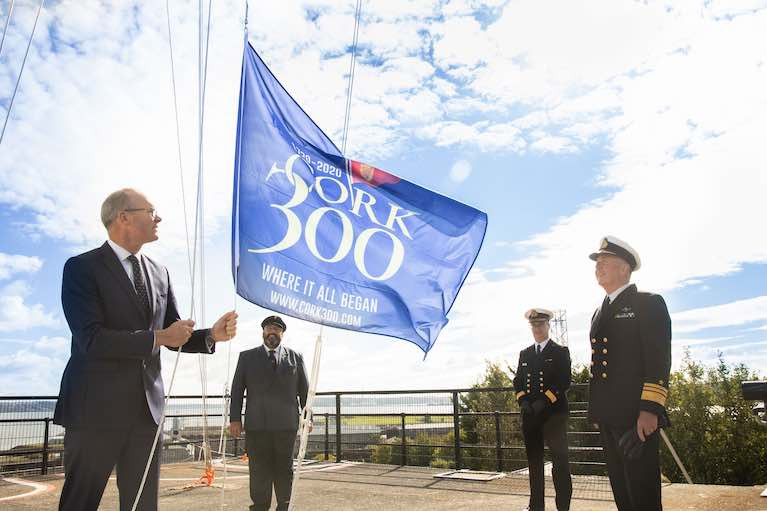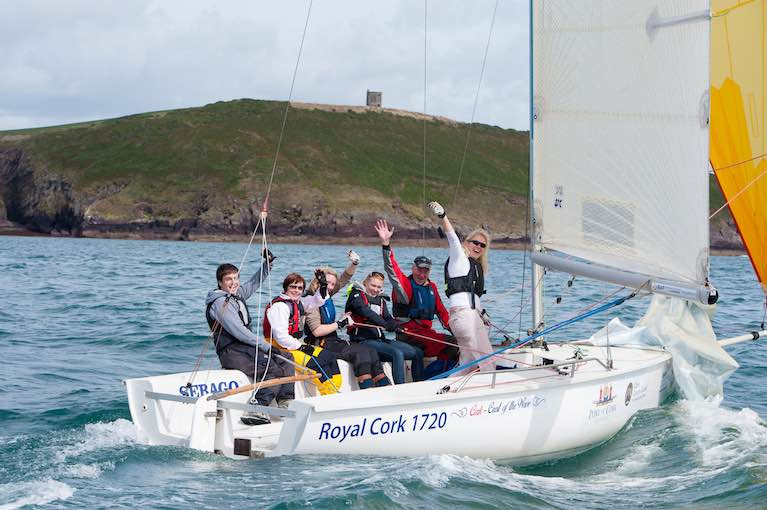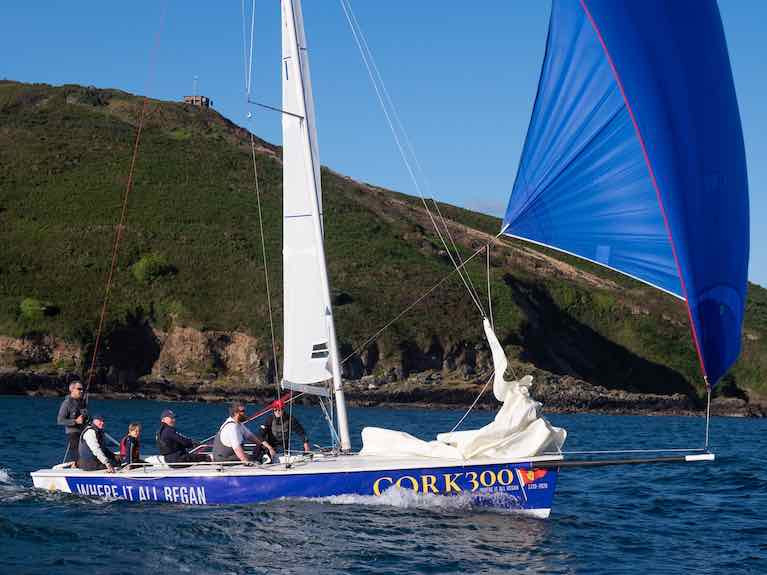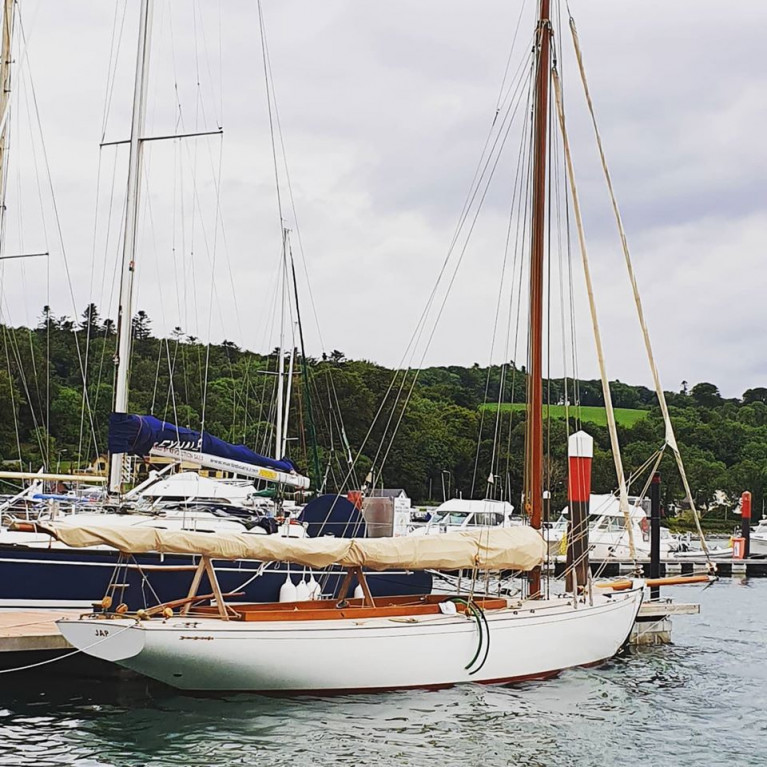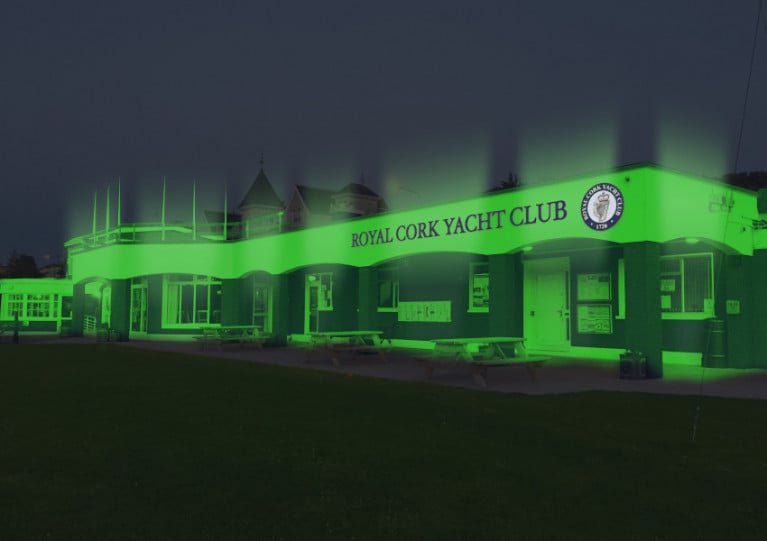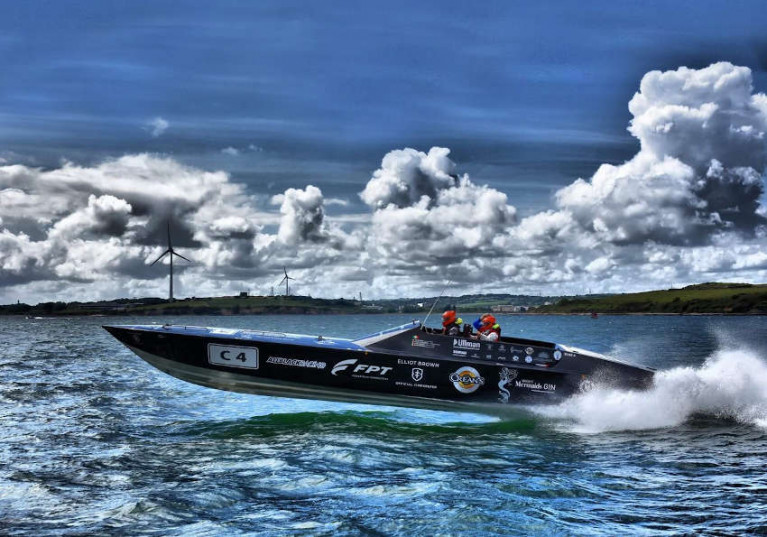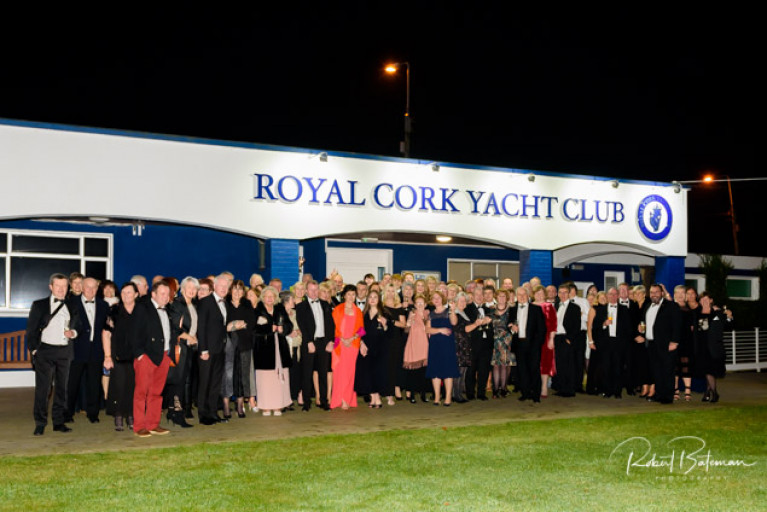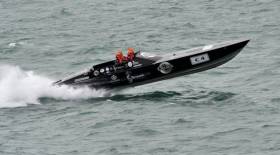Displaying items by tag: Cork 300
The AIB RCYC Tricentenary At Home Regatta was held at the weekend in fantastic sunshine and followed the Taoiseach's salute to 300 years of sailing in Cork Harbour at the Tricentenary Maritime Parade on Saturday, as Afloat reported here.
A programme of events both on and off the water was held with two great day's of racing, an AIX Rosé reception and a picnic on Sunday for members and guests.
The tricentenary events were originally scheduled to take place in 2020 as part of a phenomenal Cork300 celebration across Cork Harbour to celebrate the sailing club’s 300th anniversary and heritage as the oldest club globally. However, they had to be postponed because of the Covid-19 pandemic and many of the larger high profile international events, such as The Great Gathering, the Powerboat Festival, and Volvo Cork Week, which were set to attract thousands of sailors and competitors from around the globe, could not be rescheduled.
Admiral of the Royal Cork Yacht Club and Chairman of Cork300 Colin Morehead said, “The Royal Cork is delighted to be in a position to put on a weekend of celebratory events to mark the club’s tricentenary one year on. We are, of course, disappointed not to be joined by our international comrades and thousands of spectators as originally planned, but we hope we have left them with a desire to visit Cork when life returns to normal.”
 RCYC Admiral and Lady Admiral Colin and Irene Morehead cut the 300th birthday cake at Crosshaven Photo: Bob Bateman
RCYC Admiral and Lady Admiral Colin and Irene Morehead cut the 300th birthday cake at Crosshaven Photo: Bob Bateman
As always, ‘the At Home’ was open to Royal Cork members and visiting clubs.
 Former Admiral Hugh Mockler tries his hands at boules on the club lawn
Former Admiral Hugh Mockler tries his hands at boules on the club lawn
A Parents Oppie Race, Youth Table Tennis Event, Face Painting and Admirals’ Boules were just some of the shoreside events at Crosshaven.
 There was intense competition in the crab catching contest at the club pontoon Photo: Bob Bateman
There was intense competition in the crab catching contest at the club pontoon Photo: Bob Bateman
At Home Regatta Shoreside & Racing Photo Gallery by Bob Bateman
After a short postponement on the water to wait until the wind had settled, the Race Officer gave the cruiser-racer fleets two good long races in the promising weather.
 Sportsboat class racing in the 'At Home' Regatta Photo: Bob Bateman
Sportsboat class racing in the 'At Home' Regatta Photo: Bob Bateman
So tight was the competition that, in one case, four boats ended up on 11 points.
 Internationally famous Cork yacht racing skipper and match racer Harold Cudmore took the helm of the Cork Harbour One Design Jap for the celebrations Photo: Bob Bateman
Internationally famous Cork yacht racing skipper and match racer Harold Cudmore took the helm of the Cork Harbour One Design Jap for the celebrations Photo: Bob Bateman
The National 18s had a good turn and sailed four short races.
 National 18 dinghy racing Photo: Bob Bateman
National 18 dinghy racing Photo: Bob Bateman
Kieran Collins Olson 30 Coracle IV was the winner of the 15 boat IRC cruisers division. ECHO Handicap was won by the Sunfast 32 Bad Company (Desmond/Ivers/Keane)
Kieran O'Brien's MG335 Magnet was the IRC White Sail winner.
Michael McCann's Etchells Don't Dilly Dally was top in an eight boat Sportsboat division beating a raft of the club's own 1720 designs.
The full results are here.
The prizegiving was carried out in the club's car park (due to COVID requirements) and was split into Junior and National 18 and the cruiser-racers later on. Mr Eoin Gunn presented the prizes on behalf of sponsors AIB.
At Home Regatta Prizegiving Photo Gallery by Bob Bateman
Minister Coveney Marks Royal Cork Yacht Club's 300th Birthday
Minister of Foreign Affairs and of Defence Simon Coveney TD marked the Royal Cork Yacht Club's 300th birthday at a small ceremony on Haulbowline island this weekend (Saturday 29 Aug), the Irish Naval Headquarters and home of the original 'Water Club of the harbour of Cork', as it was known back in 1720.
He was joined by the Chief of Staff of the Irish Defence Forces, Vice Admiral Mark Mellett, Flag Officer Commanding Naval Service Commodore Michael Malone, and the Admiral of the Royal Cork Yacht Club Colin Morehead.
The Minister also visited a new Royal Cork Yacht Club Exhibition, supported by AIB, at the Sirius Arts Centre in Cobh, another former home of the sailing club from 1854 to 1966. The exhibition, which will run until December, looks back on the history of the club over 300 years, and what life was like during its time in Cobh.
 The Minister also visited a new Royal Cork Yacht Club Exhibition, supported by AIB, at the Sirius Arts Centre in Cobh, another former home of the sailing club from 1854 to 1966
The Minister also visited a new Royal Cork Yacht Club Exhibition, supported by AIB, at the Sirius Arts Centre in Cobh, another former home of the sailing club from 1854 to 1966
The Royal Cork, which is the oldest sailing club in the world, had to rescheduled most of its Cork300 events series planned to celebrate its 300th birthday until July 2021, as a result of Covid-19.
The National 18 Southern Championships and the AIB 1720 Southern Championships went ahead this weekend, with activity limited to the water.
The hope is to truly mark the significant occasion next summer with a Tricentenary Maritime Parade in Cobh, a Tricentenary at Home Weekend Regatta, a Powerboat Festival, an exciting world-record attempt, A Family Race to the City, a Cork300 Gala Dinner in Cork City Hall, a Wild Atlantic Way Cruise in Company along the Cork and Kerry coastline, and more events yet to be announced.
The celebrations will coincide with the Irish Navy's 75th anniversary and the final year of Seafest in Cork, making it a significant year for maritime celebrations in the county.
Commenting at the ceremony at Haulbowline, Minister Simon Coveney said, "It is a real pleasure to mark the 300th birthday of the Royal Cork Yacht Club. This is the oldest sailing club in the world and it all began here on Haulbowline Island, where the headquarters for the Irish Naval service is today, 300 years ago. The Club has grown and expanded since then - starting in Haulbowline, then moving to the Sirius in Cobh, before it's current home in Crosshaven. It is a huge part of Cork harbour's history and it is a history we are all very proud of.
"We should have been celebrating with one of the most significant maritime festivals in the history of Cork harbour this summer, certainly in my lifetime, but because of Covid-19 none of that has been possible. I am delighted we could hold a small ceremony here with the Admiral of the Club Colin Morehead, the Chief of Staff of the Irish Defence Forces Vice Admiral Mark Mellett, and the Flag Officer Commanding Naval Service Commodore Michael Malone, to recognise this very important day."
Admiral of the Royal Cork Yacht Club Colin Morehead said, "I am really proud to stand here today at the original home of the Water Club of Cork, 300 years on from when it was founded by 25 pioneering individuals, alongside Minister Coveney, the Chief of Staff of the Irish Defence Forces and the Flag Officer Commanding Naval Service. It is with deep regret that we had to reschedule our celebratory events, but public health must come first. We hope that by 2021 we will be in a much better position to truly celebrate the momentous feat of having the oldest sailing club in the world here in Cork.
"I hope the public will visit the excellent exhibition at the Sirius over the coming months. As branch manager of AIB in Cobh, I am proud to have this exhibition in the town and to have it sponsored by AIB. I would like to sincerely congratulate the team at Sirius."
A number of sailing events are currently still scheduled to take place from September to November 2020, including the AIB Cork300 Autumn League which will be held over 5 weekends leading up to the October Bank Holiday. This is expected to be the largest yacht racing event on the South Coast of Ireland this year. Sailing teams from across the country also hope to compete in Cork Harbour for the title of AIB Irish Team Racing National Champion 2020 from 21-22 November.
Royal Cork Yacht Club Reschedules Big Weekend of Celebrations for 300th Birthday to 2021
The Royal Cork Yacht Club has rescheduled the biggest weekend of its Cork300 tricentenary celebrations, planned for 28-30 August, in light of new government restrictions on outdoor and sporting events announced last week.
Many of the events, which included a Tricentenary Maritime Parade in Cobh, a Tricentenary at Home Weekend Regatta, and the Fastnet Powerboat Challenge, an exciting world-record attempt, had already been pushed back from earlier in the summer. A Family Race to the City on 12-13 September has also been put on hold. This follows on from the recent cancellation of Volvo Cork Week, the Great Gathering, and the inaugural Powerboat Festival.
The Crosshaven based sailing Club hopes to be in a position to reschedule most of these events, in addition to others that were previously cancelled like the Cork300 Gala Dinner in Cork City Hall and Cork300 Wild Atlantic Way Cruise in Company along the Cork and Kerry coastline, to July 2021.
The events will coincide with the Irish Navy’s 75th anniversary and the final year of Seafest in Cork, making it a big year for maritime celebrations in the county.
Small ceremony at Haulbowline
A number of small activities will still take place to mark the anniversary this weekend. Minister of Foreign Affairs and Defence Simon Coveney TD and Flag Officer Commanding Naval Service Commodore Michael Malone will join the Admiral of the Royal Cork Yacht Club Colin Morehead for a small ceremony at Haulbowline, the Irish Naval Headquarters and home of the original ‘Water Club of the harbour of Cork’, as it was known back in 1720.
A new Royal Cork Yacht Club Exhibition, supported by AIB, will also open at the Sirius Arts Centre in Cobh this Saturday, another former home of the sailing club from 1854 to 1966. The exhibition, which will run until December, will look back on the history of the club over 300 years, and what life was like during its time in Cobh.
The National 18 Southern Championships and the AIB 1720 Southern Championships will go ahead over the weekend, but activity will be limited to the water, with the clubhouse closed to visitors.
Commenting on the rescheduled events series, Admiral of the Royal Cork Yacht Club Colin Morehead said, “It is with deep regret that we have to yet again reschedule our celebratory events, but public health must come first. We hope that by 2021 we will be in a much better position to truly celebrate the momentous feat of having the oldest sailing club in the world here in Cork.
“I am delighted to be joined by Minister Coveney and Commodore Malone at Haulbowline to mark the actual anniversary of the Royal Cork in some small way, and I hope the public will visit the excellent exhibition at the Sirius over the coming months. As branch manager of AIB in Cobh, I am proud to have this exhibition in the town and to have it sponsored by AIB.”
A number of sailing events are currently still scheduled to take place from September to November 2020, including the AIB Cork300 Autumn League which will be held over 5 weekends leading up to the October Bank Holiday. This is expected to be the largest yacht racing event on the South Coast of Ireland this year. Sailing teams from across the country also hope to compete in Cork Harbour for the title of AIB Irish Team Racing National Champion 2020 from 21-22 November.
As the event only takes place every other year, the Royal Cork has also announced dates for its 2022 Volvo Cork Week Regatta, which will be held from 11-15 July 2022. Strong interest is already being received from several one design classes to hold their championships as part of the event.
Royal Cork Cancels Tricentenary Parade in Cork Harbour
Royal Cork Yacht Club has cancelled its Tricentenary Parade and 'At Home' Regatta which was to be held next weekend in Cork Harbour.
RCYC Admiral Colin Morehead told members in an advisory note this afternoon: "It is with deep regret that we announce the postponement of the Tricentenary At Home Regatta including the Tricentenary Parade until 2021.
We believe the event must continue to be true to both the traditions and the spirit of the At Home Regatta concept and the Tricentenary celebration should be worthy of that of the oldest yacht club in the world; this was to be impossible this year given the changes announced by the government earlier this week".
Cork Harbour One Design 'Jap' Returns for Royal Cork 300
The vintage and immaculately restored Cork Harbour One Design 'Jap' was back on home waters today, at the marina at Royal Cork Yacht Club in celebration of Cork300.
Prior to launching the historic 1895-built boat was trailed to Crosshaven and stored on her trailer at Crosshaven Boatyard, drawing many admiring glances.
As Afloat's Tom MacSweeney reported in March, C4, Jap, after many years based on the South Coast of England, has been donated by her owner to the Royal Cork YC and will be sailing in Cork this season.
Photos prior to Jap's launch below by Bob Bateman




Yachts Clubs Around The Globe Encouraged To Go Green For St Patrick’s Day & Mark Royal Cork’s Tricentenary
Yacht clubs around the globe are being encouraged to ‘Go Green’ for St Patrick’s Day to celebrate the 300th anniversary of the oldest yacht club in the world.
Every St Patrick’s Day, famous landmarks around the world turn green in celebration of the Irish national holiday, from Rome to Rio and London to Las Vegas.
This year, the Royal Cork Yacht Club is inviting all sailing clubs in Ireland and around the world to ‘Go Green’ on Tuesday 17 March to help mark its historic tricentenary.
To take part, simply shine a green light on your building or dress in green on the day and share your photos with the Royal Cork Yacht Club via email on [email protected].
Sailing communities throughout Europe and as far as Australia, Hong Kong and San Francisco are registering to attend the Cork300 celebrations — which will take place primarily during the months of July and August — with an exciting variety of nautical and onshore events scheduled, including the International Power Boat Festival on 11-12 July.
As part of the celebrations, communities across Cork Harbour will host a vast array of sailing, racing, food, and entertainment events, along with a number of talks, ensuring Cork will be the only place to be in Summer 2020. See Cork300.com for more, and click HERE to register your interest in Cork300 events
Cork Harbour will play host to four major, and very different, powerboat events over the weekend of 11 and 12 July.
Previously announced last autumn, the International Power Boat Festival, which is a first for Ireland, is part of the Cork300 events series which celebrates the tricentenary of the oldest yacht club in the world, the Royal Cork.
Four major powerboat events will take place during the festival — three of which will be held in Ireland for the first time while the fourth, the Harmsworth Trophy, last took place in Cork 117 years ago and was the first inter-nation powerboat race in the world.
The Royal Cork Yacht Club is inviting a mix of classic boats from the past along with solar and alternative energy boats of the future, and endurance offshore racing boats.
A modern fleet of endurance offshore racing boats will also compete for the honour of being crowned UIM Offshore Marathon World Champion.
To honour Alfred C Harmsworth and those who established the original set of rules for the 1903 race, a specially commissioned Nations trophy will also be awarded to the competitors whose nation has the overall best performance across all four classes in the UIM World Championship Offshore race.
In addition, there will be an attempt at the UIM Long Distance Cork-Fastnet-Cork World Record — claimed in 2018 by Irish team Allblack Racing — as well as a classic motorboat rally where you can see classic and alternative energy boats.
Colin Morehead, chair of Cork300 and Admiral of the Royal Cork Yacht Club said: “I am delighted to see the return of powerboat racing to Cork Harbour after many years.
“The Cork300 events series was developed to look back at ‘where it all began’ and celebrate the club and Cork Harbour’s 300 years of history. We are proud to again host milestone historic events like the Harmsworth Trophy after so many years.
“It is incredible to think that Cork hosted the first inter-nation powerboat race in the world. The entries this year will be considerably faster than those which raced in 1903 but the atmosphere and excitement across the harbour will be no less incredible.
“Sustainability is very important to the Royal Cork Yacht Club so we aim to honour the past, present and future of powerboating, and promote the use of alternative energy and classic boats.”
Inviting offshore powerboat racers from around the world to participate in the festival, Admiral Morehead added: “We sincerely hope that as in 1903, this event will be the start of a truly historic future for the sport of offshore racing.”
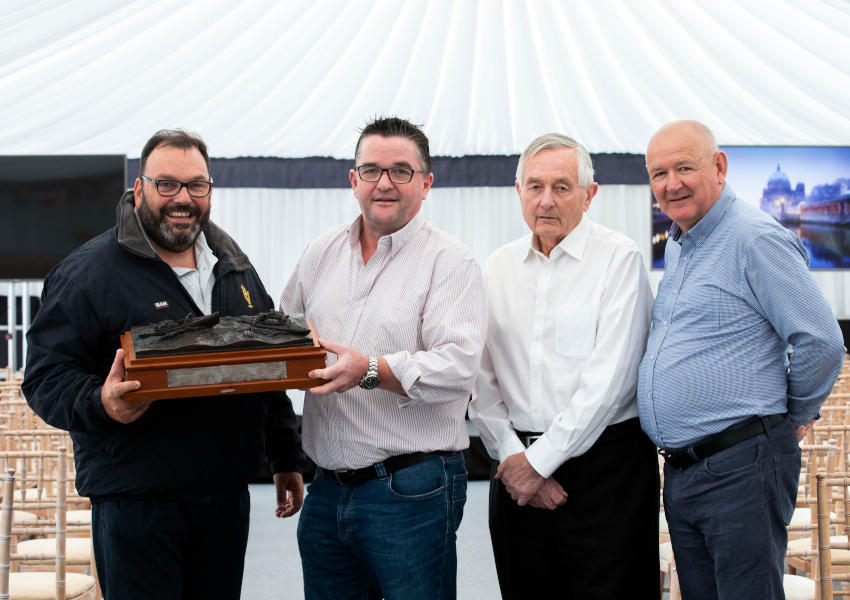 Pictured at the launch of the International Power Boat Festival are Colin Morehead, Royal Cork Admiral and Cork300 chair, with Justin McInerney, president of the Irish Powerboat Association; Richard Salaman, trustee, British International Harmsworth Trophy; and UIM council member Denis Dillon
Pictured at the launch of the International Power Boat Festival are Colin Morehead, Royal Cork Admiral and Cork300 chair, with Justin McInerney, president of the Irish Powerboat Association; Richard Salaman, trustee, British International Harmsworth Trophy; and UIM council member Denis Dillon
Here’s the line-up of events for the International Power Boat Festival in Cork Harbour:
UIM Offshore Marathon World Championship (11 July)
This event will see a modern fleet of endurance offshore racing boats taking on the waters off the Cork Coast. Competition for the UIM World Championship Endurance Marathon 2020 will take place over two races. Weather permitting, both races will be held on the same day.
- Race 1: From Cobh to Mizen Head, around the iconic Fastnet Lighthouse and back to Cork Harbour (136 nautical miles).
- Race 2: From Cork Harbour heading east to Capel Island and back to Cork Harbour (65 nautical miles).
British International Harmsworth Trophy (11 July)
In honour of the Royal Cork Yacht Club hosting the inaugural race for the historic Harmsworth trophy in 1903, the trustees of the trophy will bring it back to its birthplace in Cork. The Royal Cork will once again host a series of races for those competitors determined to get their names inscribed beside some of the legends within offshore international racing.
The event will run alongside the UIM World Championship and will truly be an offshore challenge (total distance 201 nautical miles).
UIM Long Distance Cork-Fastnet-Cork world record (12 July)
The UIM Long Distance World Record for Cork-Fastnet-Cork awaits any team that wishes to take on the challenge. It is presently set at 2 hours, 6 minutes and 47 seconds. In order to set a new record, any team taking on this challenge has to go from Cork Harbour to the Fastnet Rock and back to Cork Harbour, a total distance of 115.2 nautical miles, in a faster time. Those achieving this will not only be honoured with a UIM world record but also get their names inscribed on the All-Black FPT Challenge Trophy.
Classic Motor Boat Rally (12 July)
A classic motor boat rally will take place on Sunday 12 July. In honour of the Royal Cork’s hosting of the inaugural Harmsworth Cup Race in 1903, the course will be similar to the original Harmsworth course from the 1903 Royal Cork Yacht Club building in Cobh (now the Sirius Arts Centre) to Cork city via Blackrock Castle on the River Lee.
Fleet Review
There will be a fleet review for all Royal Cork and visiting yachts/craft with the Admiral and Flag Officers of the yacht club and other dignitaries between two of the former club premises on Haulbowline Island and Cobh. There will be a few surprises on the day and everyone participating in the International Power Boat Festival is encouraged to participate in what will be a fitting spectacle to celebrate where it all began.
Other events taking place this summer for Cork300 include the eye-catching Glandore Classic Regatta; the historic Kingstown/Queenstown race from Dun Laoghaire to Cobh; the world-famous annual Volvo Cork Week regatta, a Wild Atlantic Way sailing ‘cruise in company’ for visiting yacht clubs; and a gathering of naval ships in Cork city.
The prestigious Morgan Cup, awarded by the Royal Ocean Racing Club (RORC), will also come to Ireland for the first time as part of Cork300. See Cork300.com for more, and click HERE to register your interest in Cork300 events.
Royal Cork Yacht Club celebrated the new year's arrival in style at Crosshaven, Cork Harbour last night in anticipation of a bumper Cork300. 2020 is an important anniversary year in which the oldest yacht club in the world will celebrate its tricentenary writes Bob Bateman.
On a still night on the Owenabue river, over 100 attended the gala dinner with a champagne reception.
At the appointed time, RCYC Admiral Pat Farnan welcomed the new year in with a canon on the club lawn.
Photo gallery below by Bob Bateman
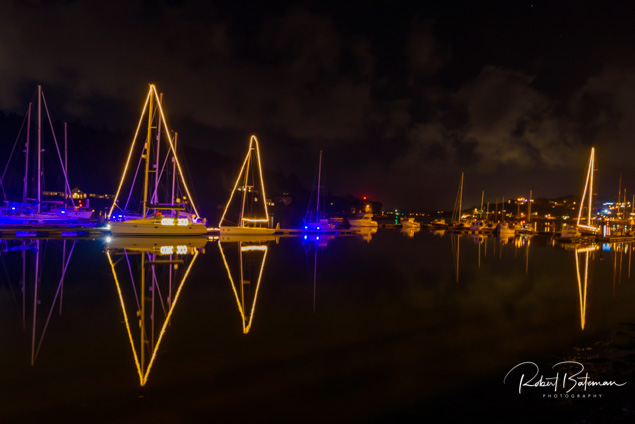
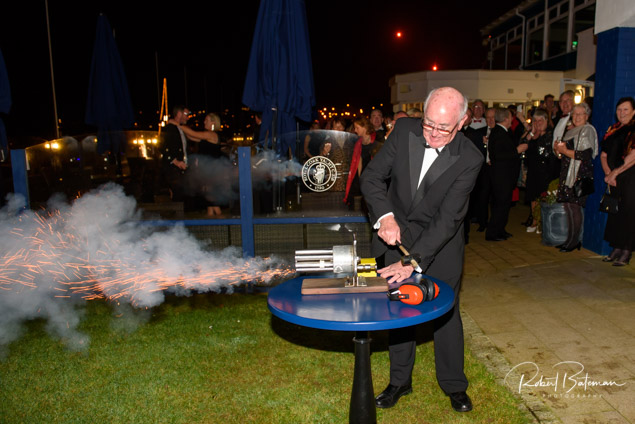
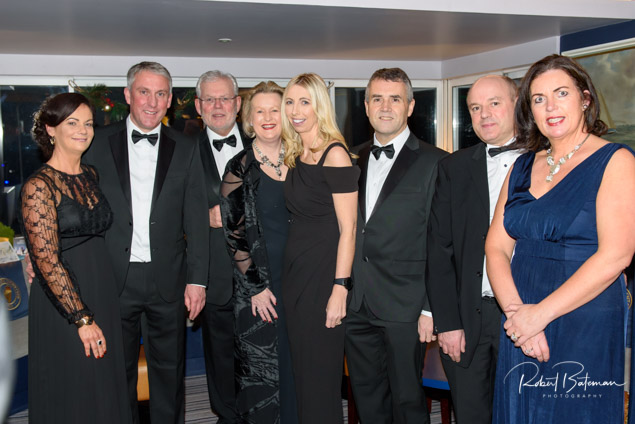
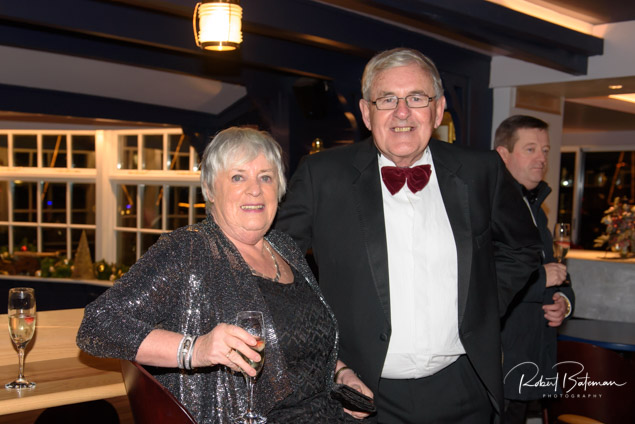

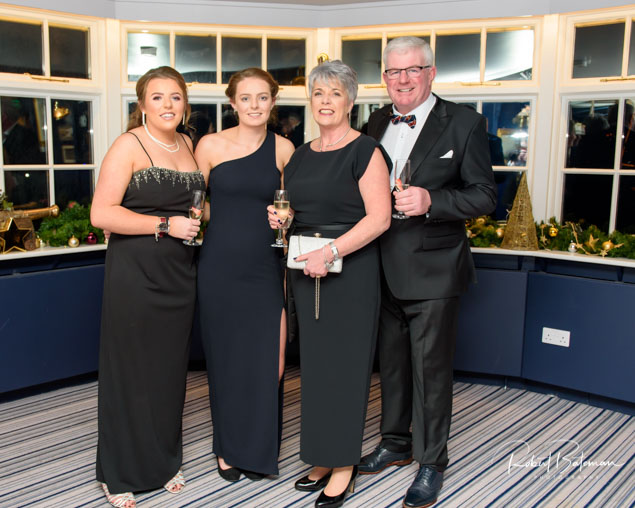
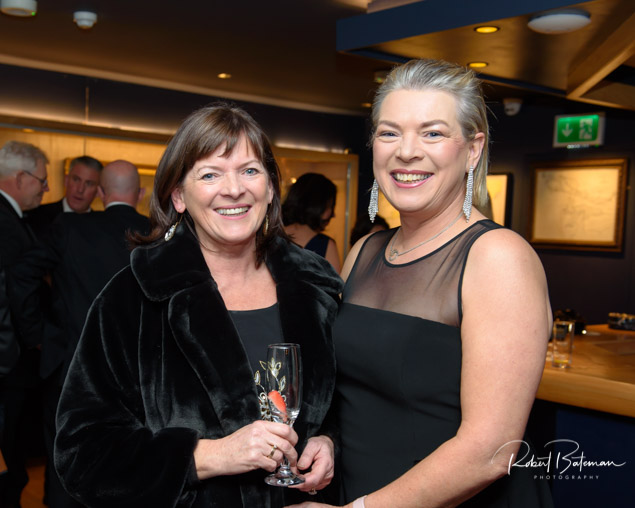
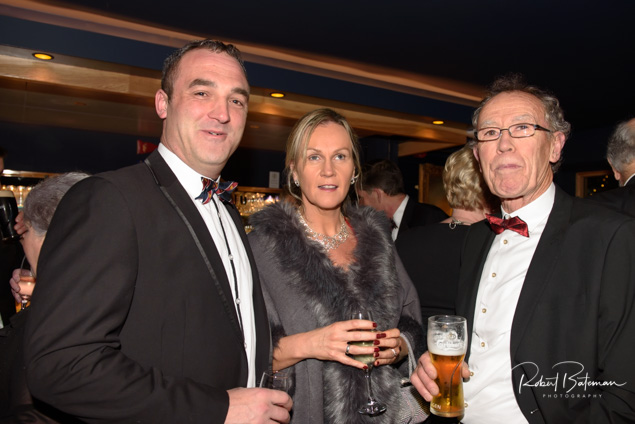
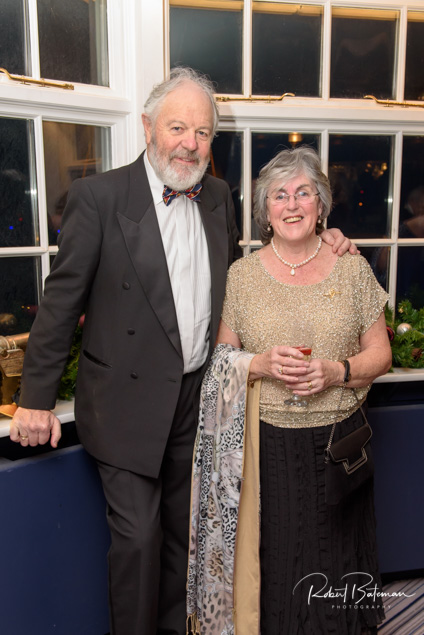
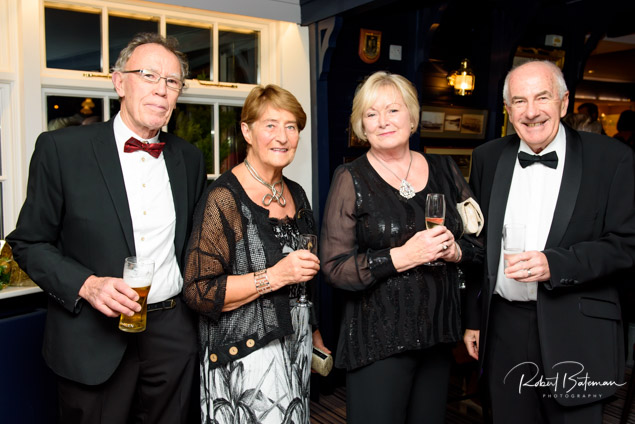
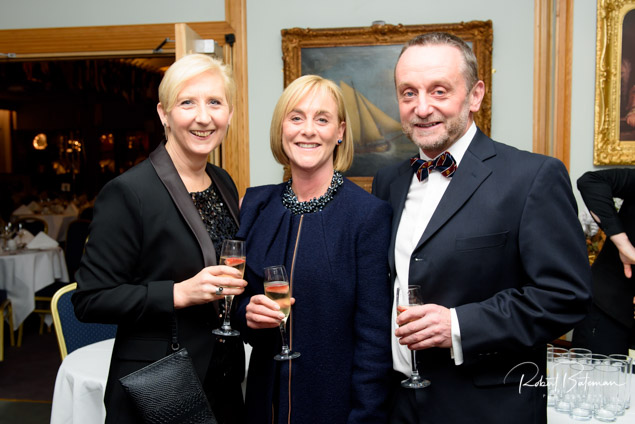
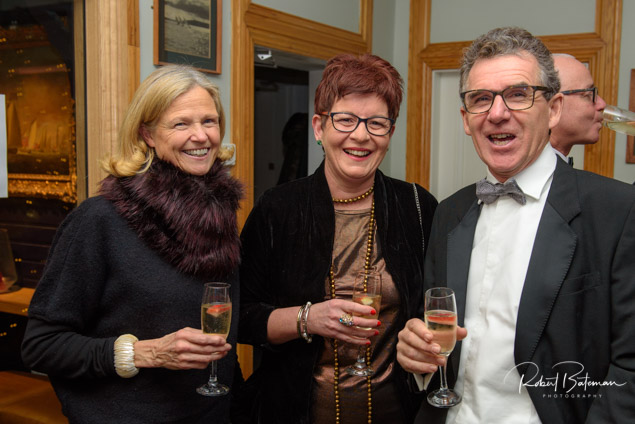
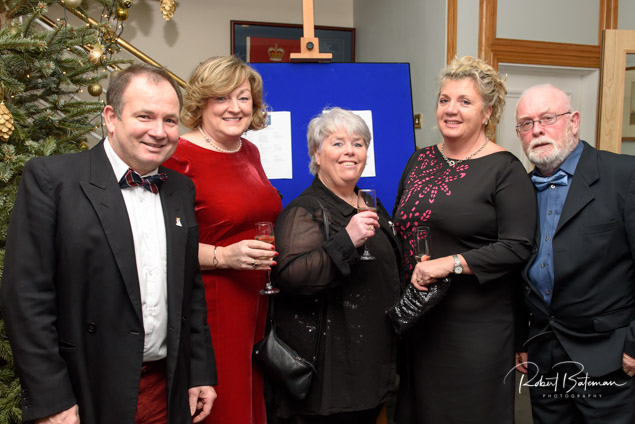
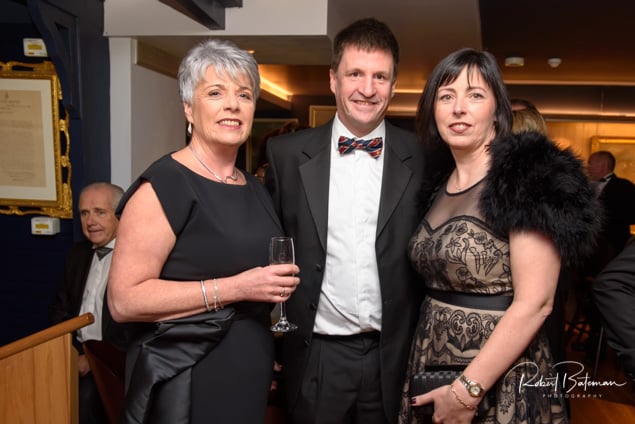
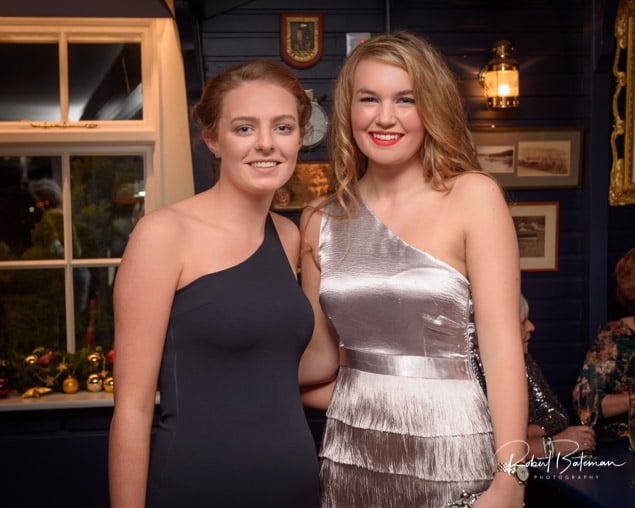
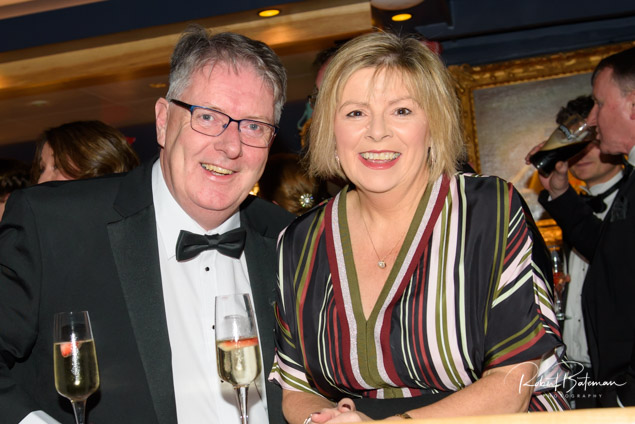
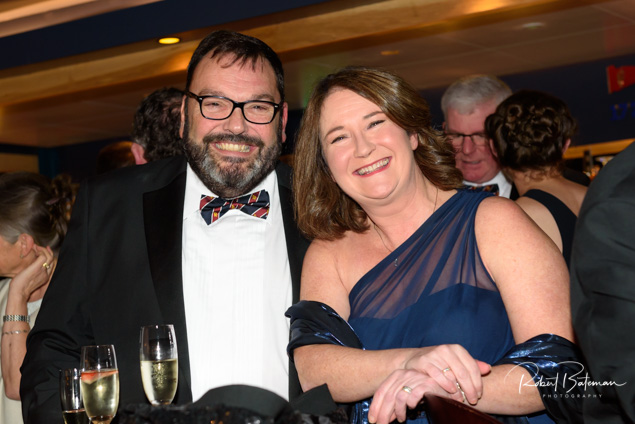
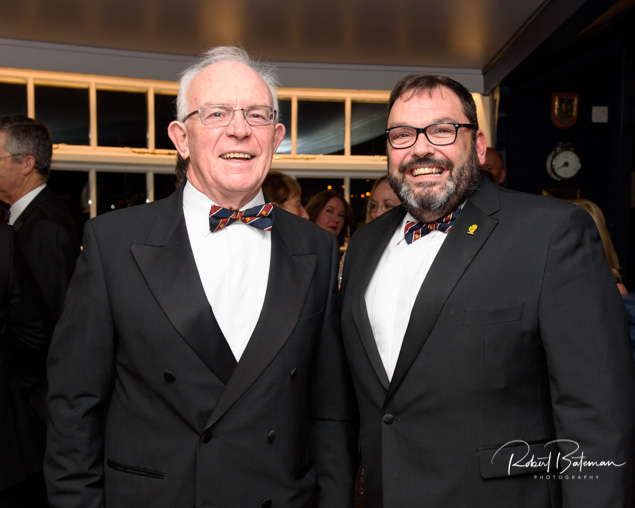
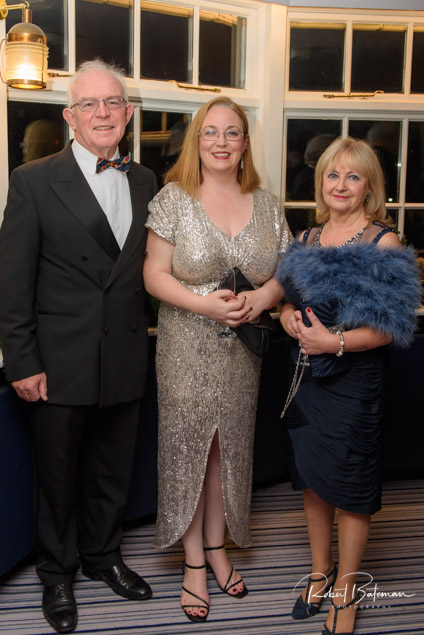
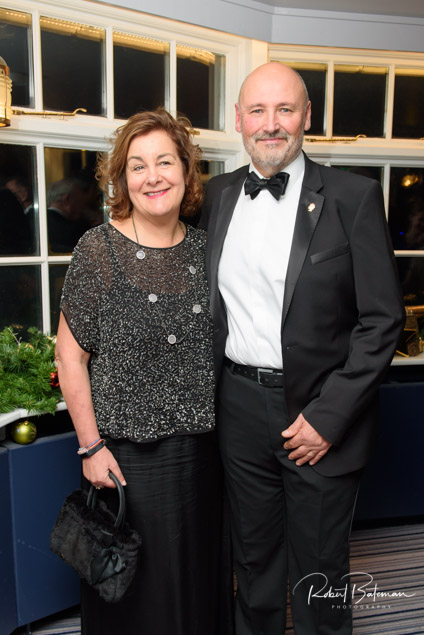
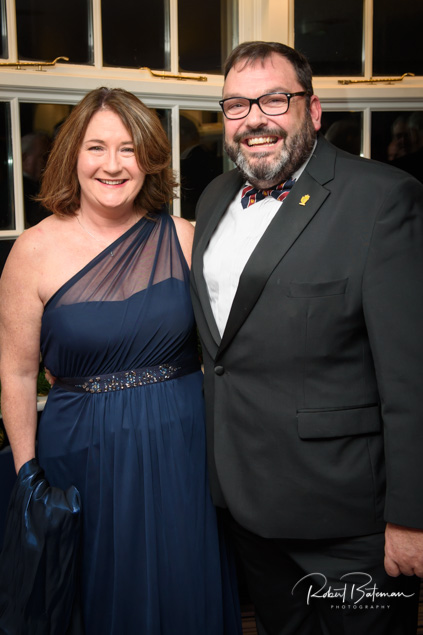
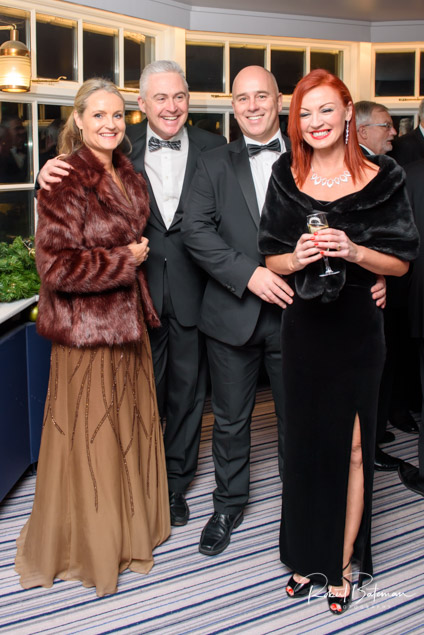
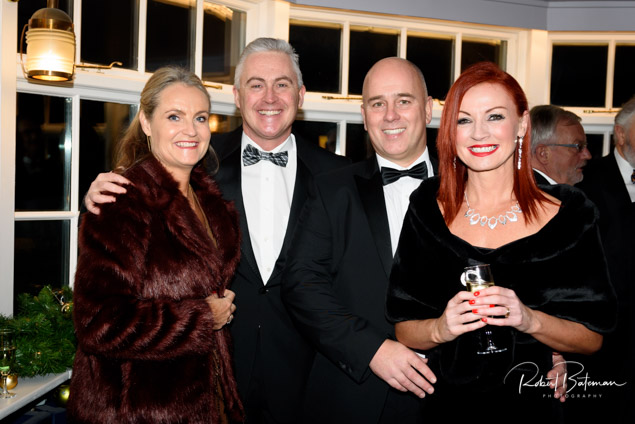
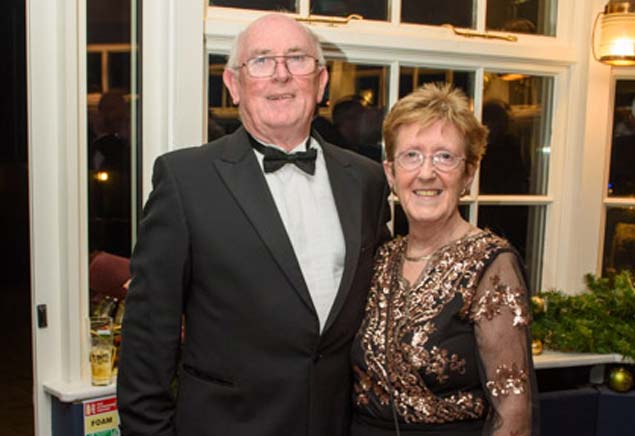
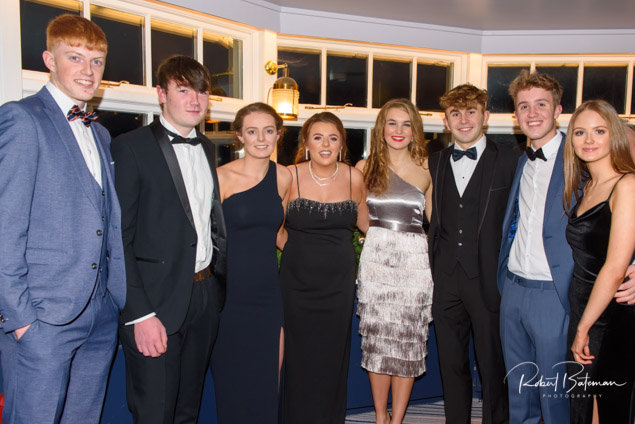
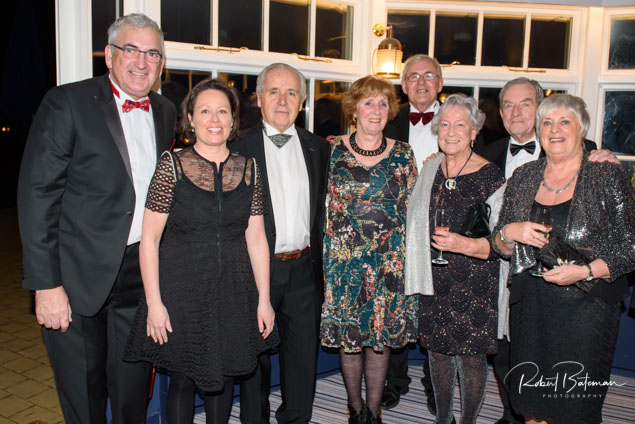
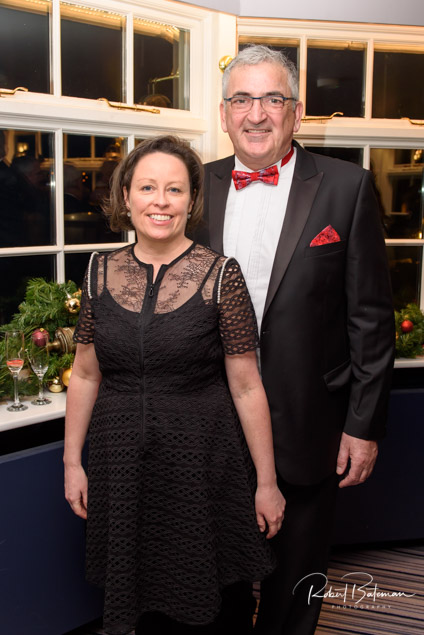
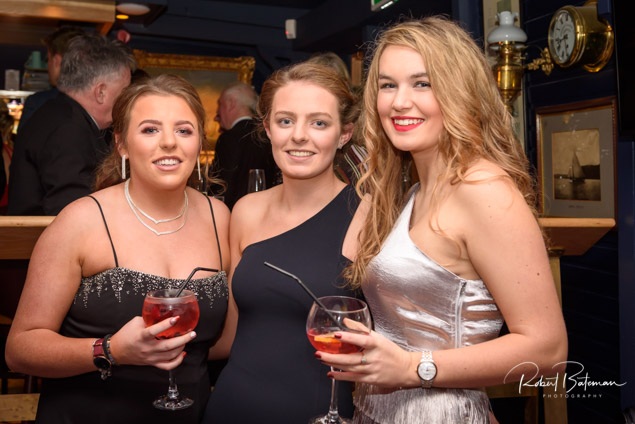
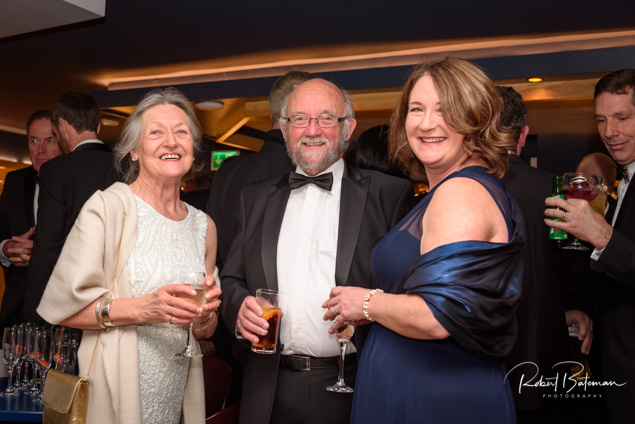
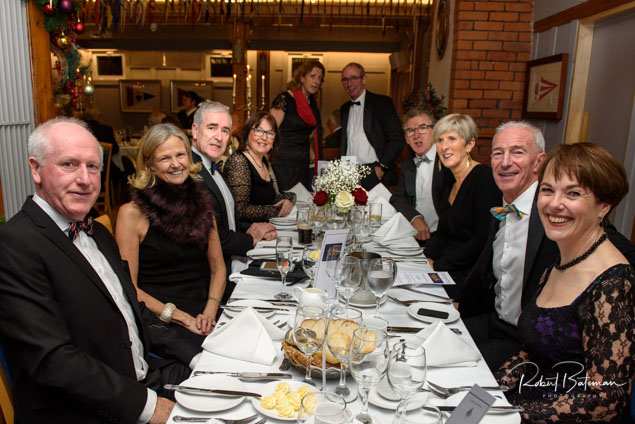
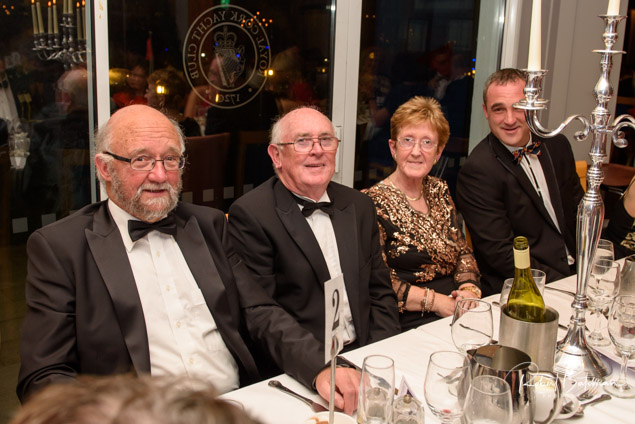
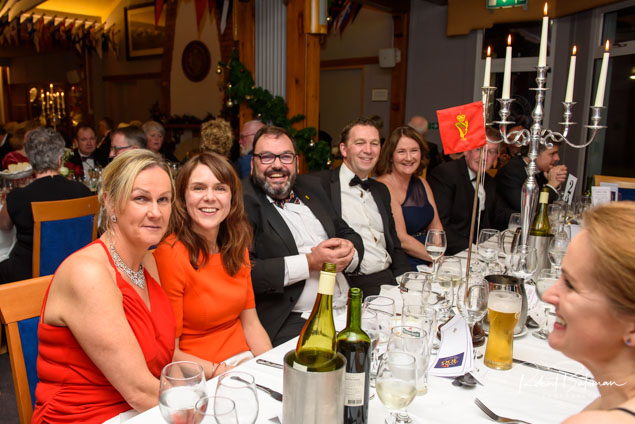
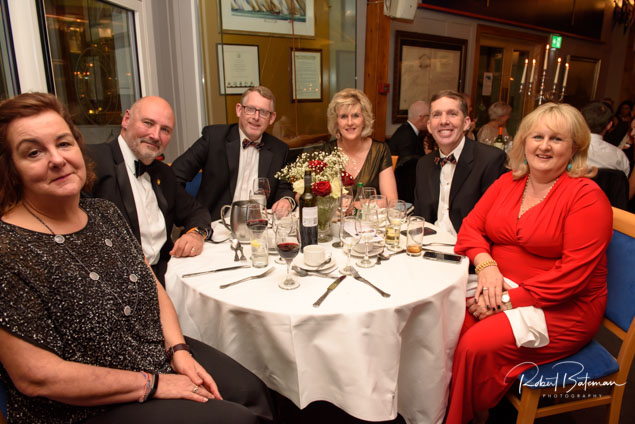
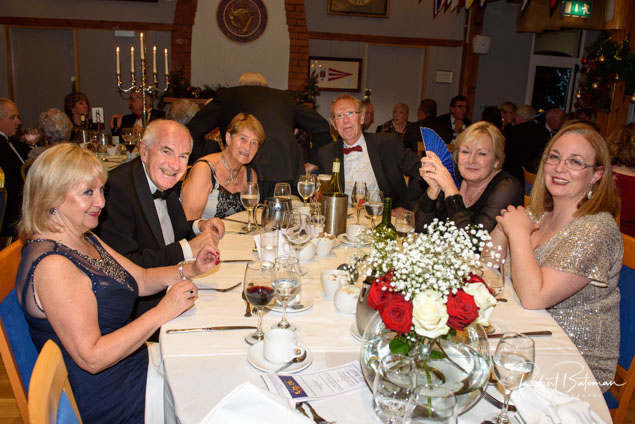
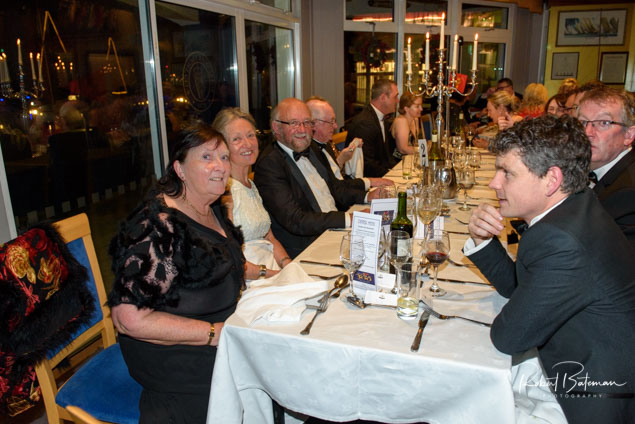
Get The Musto Cork 300 Collection Only At CH Marine
Musto is the official clothing partner to Cork 300 — the Royal Cork Yacht Club's 300th anniversary celebrations in 2020 — and CH Marine is proud to be the exclusive supplier of the Musto Cork 300 Collection.
This select range of Musto garments and luggage, embroidered with Cork 300 branding, makes for wonderful gift ideas for this Christmas — along with CH Marine’s wide range of lifestyle and casual wear, nautical equipment and so much more.
CH Marine ships worldwide, with free delivery within the island of Ireland for orders over €50 — and all purchases made by 24 December stand a chance to win a huge €1,000 Musto voucher.
International Power Boat Festival Joins Lineup Of Cork 300 Events
As part of celebrations for the Royal Cork Yacht Club’s 300th anniversary next year, Powerboat Ireland will host three major — and very different — powerboat events in Ireland for the first time.
The International Power Boat Festival on 11 and 12 July will see a modern fleet of endurance offshore racing boats compete for the honour of being crowned UIM Offshore Marathon World Champion.
In addition, the UIM long distance world record from Cork to Fastnet Rock and back — claimed last year by Irish team Allblack Racing — awaits any team that wishes to take on the challenge.
And spectators in Cork Harbour will have the opportunity to see classic boats from the past mix with solar and alternative energy boats of the future.
Colin Moorehead, Royal Cork Vice Admiral and chair of the Cork 300 events, told Powerboat Racing World of his delight at the return of powerboat racing to Cork Harbour.
“The entries next year will be considerably faster than those which raced in the first race all those years ago but the atmosphere and excitement within the harbour will be no less incredible than it was back in 1903,” he said.



























